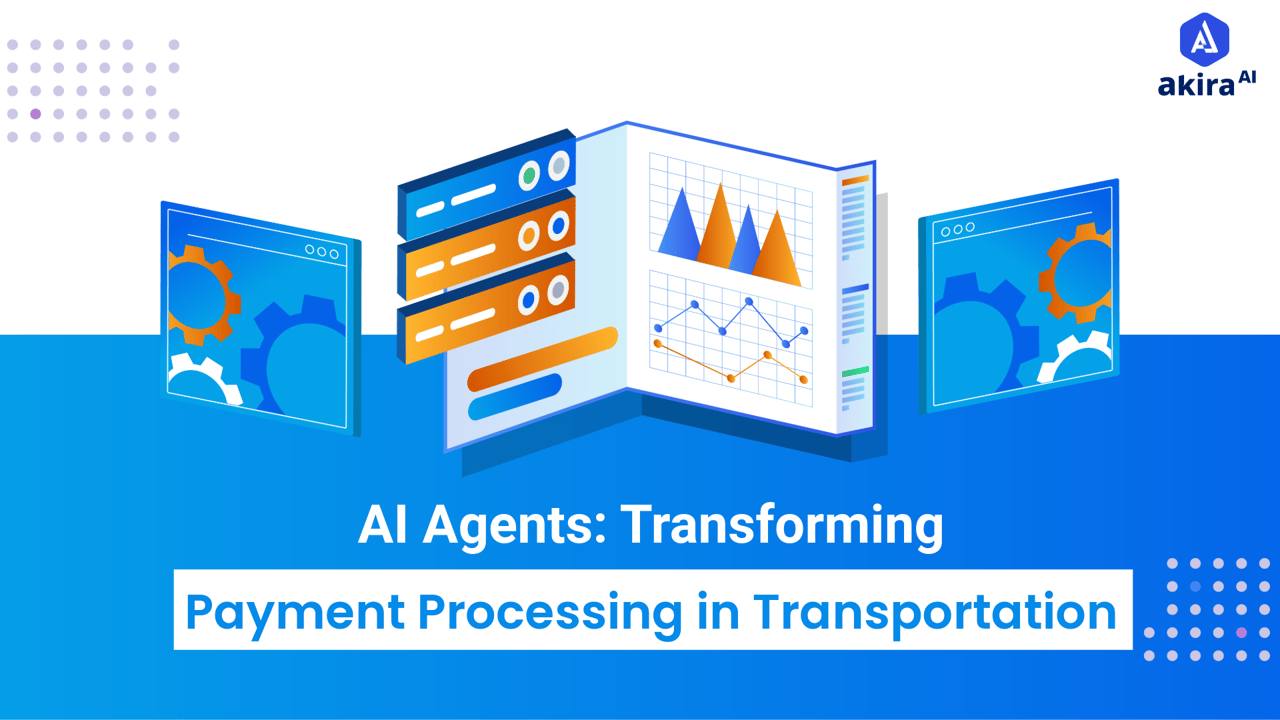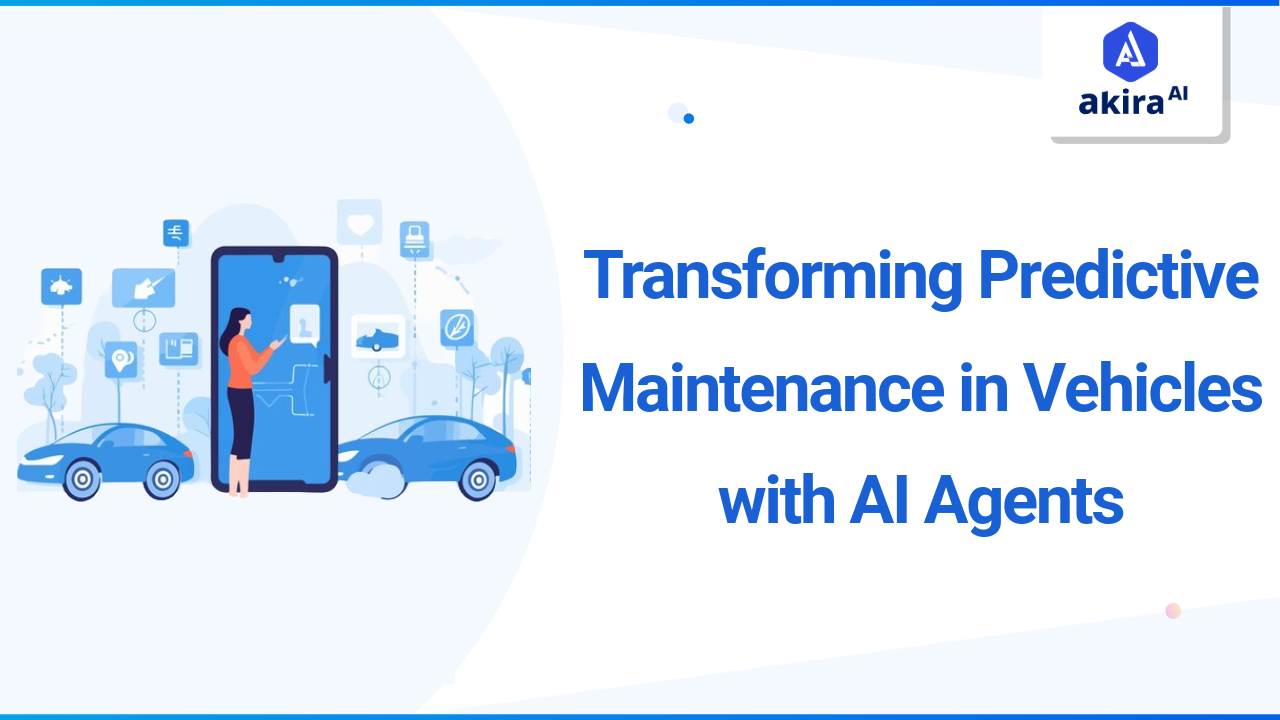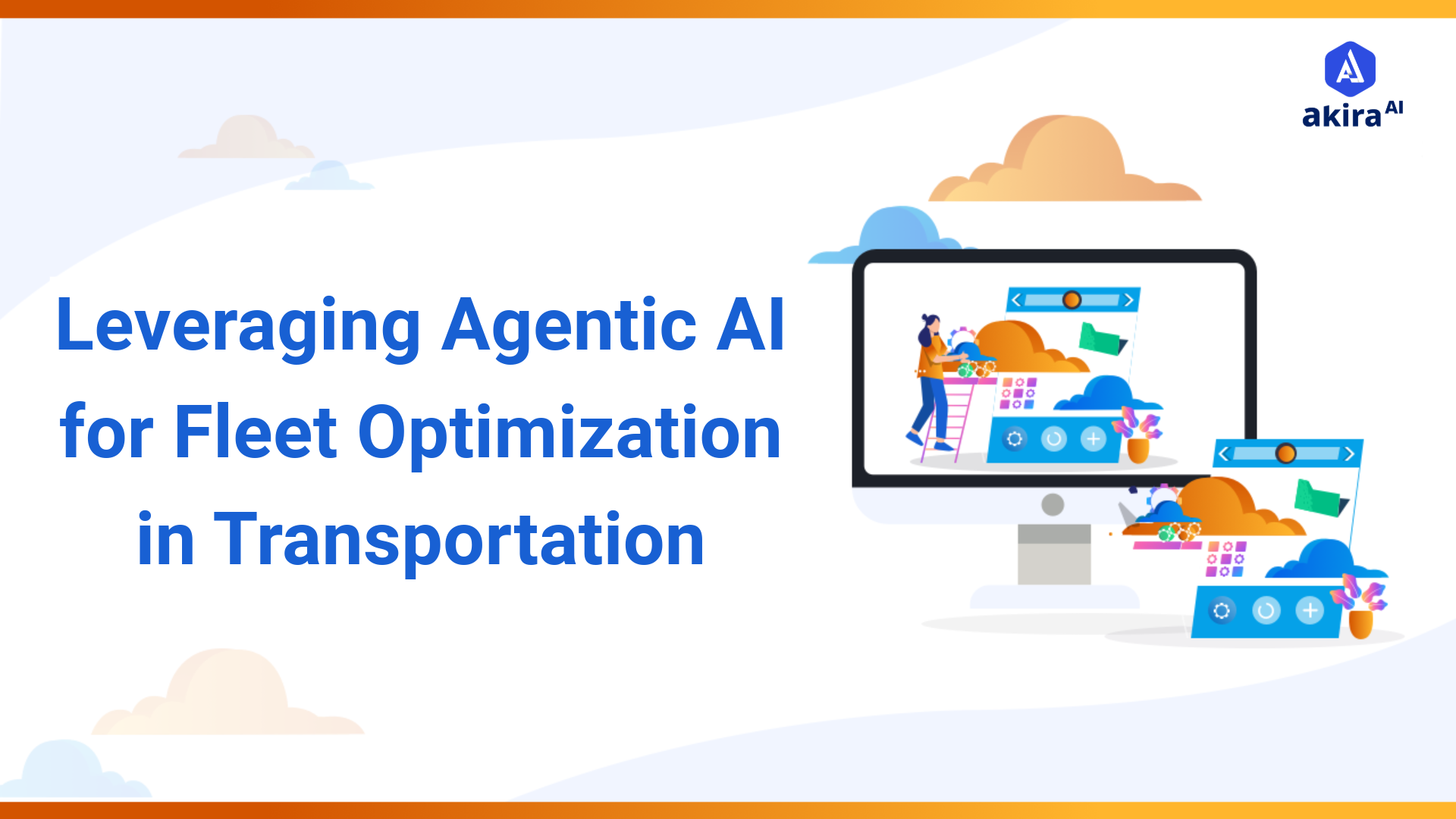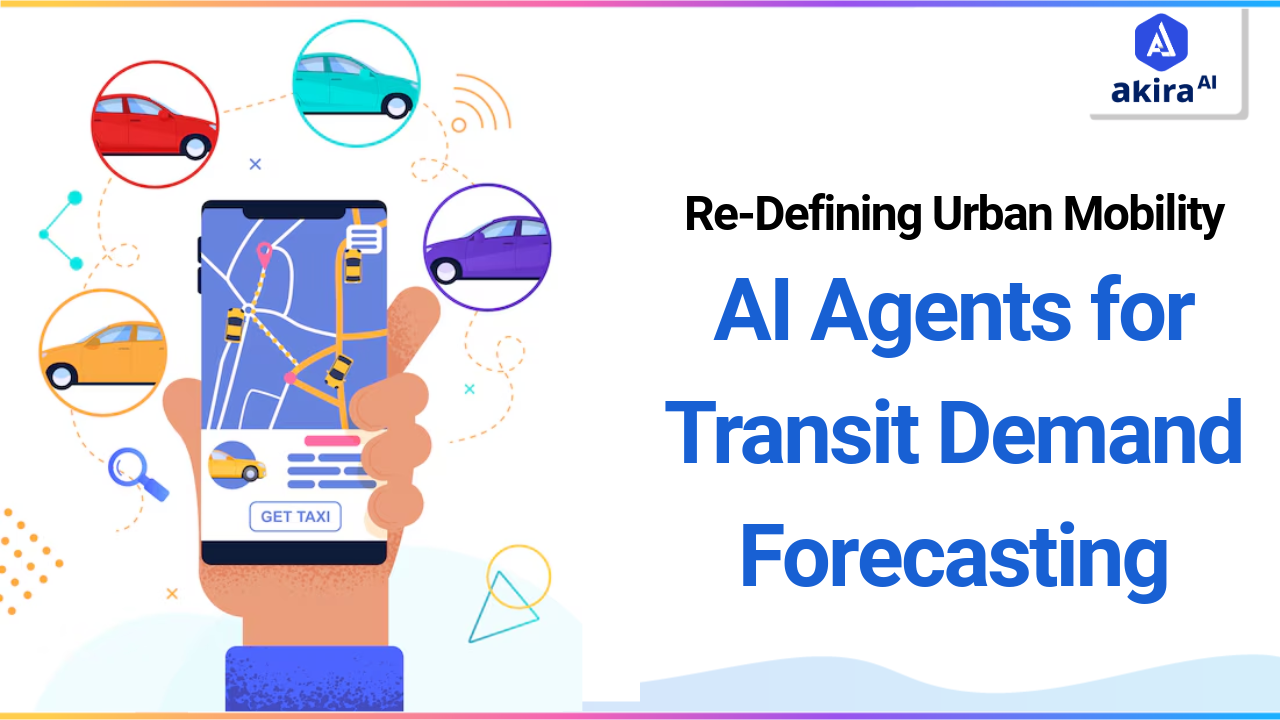Key Insights
-
Agentic AI-powered systems streamline invoice generation, payment tracking, and financial management, reducing errors and improving efficiency.
-
Automation lowers operational costs, minimizes manual work, and speeds up payment cycles, ensuring better cash flow management.
-
Specialized AI agents handle invoicing, payment tracking, data analytics, and customer interactions, improving accuracy and customer satisfaction.

Have you ever found yourself drowning in invoices and payment reminders in the transportation industry? You’re not alone! Fortunately, we live in a time where AI Teammates can make our lives much easier. These intelligent systems automate the tedious billing and payment processing tasks, allowing transportation companies to focus on what they do best: delivering exceptional services. Imagine having an intelligent assistant that generates invoices, tracks payments, and even handles customer inquiries while you concentrate on growing your business.
In this blog, we’ll explore how agentic AI is revolutionizing billing and payment processes in transportation, highlighting the benefits and real-world applications that are changing the game for companies everywhere.
What is Bill and Payment Processing in Transportation?
In the transportation industry, bill and payment processing encompasses the handling of payments as well as billing documents concerning the transportation business. Some of the activities that fall under this process are creating and processing invoices, monitoring payments and claim receivables, and other financial records. Transportation operations are multi-faceted and sometimes involve numerous parties, different terms of payment, and many types of service contracts, basic billing strategies may create numerous complications and potential for mistakes.
Traditional vs. Agentic AI-based Bill and Payment Processing
|
Aspect |
Traditional Processing |
Agentic AI-based Processing |
|
Speed |
Slow due to manual entry |
Rapid processing with automation |
|
Error Rate |
High, prone to human errors |
Low, due to automated checks |
|
Scalability |
Limited, difficult to scale |
Highly scalable with AI solutions |
|
Data Analysis |
Minimal analysis capabilities |
Advanced insights using casual AI |
|
Integration |
Fragmented systems |
Unified multi-agent system |
|
Cost Efficiency |
Higher operational costs |
Significant cost savings |
Akira AI Multi-Agent in Action
Akira AI exemplifies a multi-agent system designed specifically to optimize billing and payment processing in transportation. This comprehensive system includes several agents – all of which have their unique functionalities. Here’s a closer look at the key agents working collaboratively within Akira AI:
-
Invoice Generator Agent: The Invoice Generator Agent is an agent that supports automatic billing in the system. They depend on the actual service information such as shipment information, confirmation of delivery, and the agreements made with the clients to develop the right invoices.
Therefore, having been developed with a set of predetermined templates, this agent ensures that the results conform to some pre-established norms of the field. Besides, it can create electronic invoices as well as invoices in any other format, depending on the client’s needs.
-
Payment Tracking Agent: Once invoices are sent, the Payment Tracking Agent takes charge of monitoring payment statuses. This agent continuously tracks whether payments have been received, are in process, or are overdue.
They devise early and timely notices on late payments from the company side and from the client side to prevent unnoticed payments. Therefore, by providing real-time insight into the status of cash, this agent is of tremendous value in the overall financial management of this organization.
-
Data Analytics Agent: The Data Analytics Agent is essential for optimizing billing strategies. It operates with the payment data and examines the transaction data, as well as searching for some shortcomings and oddities that need further investigation.
This agent is more capable of producing valuable information since it utilizes advanced analytics, so decision-makers in an organization can have meaningful information concerning credit terms, pricing strategy, and risk.
-
Customer Interaction Agent: For good customer relations, the Customer Interaction Agent is also responsible for attending to all issues about billing and payments. With the application of chatbot solutions, this agent responds to customers’ requests such as clarification of invoices and state of payment in real-time.
By offering immediate assistance, this agent not only improves customer satisfaction but also reduces the workload of human support staff, allowing them to focus on more complex issues.
Use Cases and Application of Billing and Payment Processing Automation
The application of payment automation solutions in the transportation sector is diverse. Here are some notable use cases:
Freight Brokerage – Automates invoicing and ensures timely carrier payments, strengthening shipper-carrier relationships. This reduces manual work, allowing brokers to focus on core operations.
Fleet Management – Streamlines financial transactions like fuel purchases and maintenance costs, minimizing errors. Faster payment cycles improve cash flow and fleet utilization.
Logistics Companies – AI-driven invoice processing enhances accuracy and compliance with shipping contracts. Automating billing reduces manual workload and optimizes resource allocation.
E-commerce Delivery – Enables real-time invoicing and payment tracking, ensuring swift transactions. This helps businesses meet customer expectations for speed and transparency.
Public Transportation – Automates fare collection and subsidies, improving revenue management. Reducing administrative overhead ensures efficient fund allocation for public services.
Supply Chain Management – Automates supplier invoicing to ensure accurate, on-time payments. This fosters better collaboration and efficiency across the supply chain.
Charter Services – Adapts billing based on real-time usage, enhancing flexibility and accuracy. Automated invoicing improves customer satisfaction and operational efficiency.
Operational Benefits for Billing and Payment Processing
Integrating AI teammates into billing and payment processing offers numerous operational benefits:
-
Cost Efficiency: By implementing AI agents, companies can achieve substantial returns on investment. For instance, organizations often report a reduction in labor costs by up to 40% as repetitive tasks are automated. This financial efficiency allows for reinvestment into other strategic initiatives, further driving growth.
-
Significant Productivity Boost: AI agents are projected to handle approximately 80% of billing tasks by 2025, freeing up human resources for more strategic activities. This shift not only enhances productivity but also leads to faster turnaround times for billing and payment processes, directly impacting the bottom line.
-
Enhanced Operational Efficiency: Organizations can expect productivity improvements of around 30% with the introduction of automated systems. These enhancements reduce bottlenecks in billing cycles and ensure that invoices are processed swiftly, ultimately improving cash flow management.
-
Streamlined Cash Flow Management: With automation, businesses can experience a 25% increase in efficiency regarding payment collections. This streamlined approach enables quicker reconciliations, reducing the day's sales outstanding (DSO) and improving overall cash flow stability.
-
Minimized Errors and Disputes: AI-driven solutions significantly lower the risk of human errors, which can lead to billing disputes and delayed payments. Companies often report a 50% reduction in billing discrepancies after automation, which not only improves operational efficiency but also boosts client trust and satisfaction.
Technologies Transforming in Billing and Payment Processing
-
Machine Learning for Accuracy: Optimizes application models of invoice recognition through the extraction of patterns from historical documents to increase bill accuracy. It helps organizations design or adapt their business model and implement payment mechanisms, thereby enabling them to forecast payment patterns.
-
Natural Language Processing for Customer Interaction: Mobilizes customer interaction agents thereby getting feedback, and answering questions in real-time. This technology empowers chatbots to have clarity when addressing customers, hence enhancing customer satisfaction.
-
Blockchain for Security: Helps to deliver safe and popular records of transactions, which increases the level of trust between buyers and sellers and decreases the number of conflicts. Blockchain’s ability to make all transactions immutable eliminates a lot of problems associated with billing since people can be held accountable for their actions.
-
Agentic Process Automation for Efficiency: Streamlines repetitive tasks associated with invoice generation and payment processing. When performed automatically, these functions take less time to process, and the workload on the human employees is also less.
-
Cloud Computing for Collaboration: Facilitates access to data and applications from anywhere, improving collaboration across teams. This technology allows for real-time updates and information sharing, which is essential in a fast-paced transportation environment.
The Future Trends for Billing and Payment Processing
-
Enhanced Decision-Making Capabilities
With the increasing sophistication of these algorithms, such agents will allow for more efficient historical data analysis for informed decision-making. It will enable organizations to make informed decisions based on market trends within their sphere of operation.
-
Greater Integration Across Operations
The trend towards increased integration of AI across various operational areas will lead to more cohesive processes. As departments collaborate seamlessly, organizations can expect improved efficiency and reduced operational silos.
-
Personalized Customer Experiences
Autonomous agents will allow companies to provide personalized customer experiences by adapting to individual client needs and preferences. This capability will foster stronger customer relationships and enhance satisfaction.
-
Continuous Learning and Improvement
As AI technologies evolve, systems will become smarter and more adaptive. Utilizing agentic AI, these systems will continuously learn from new data, improving their processes and responses over time.
-
Advanced Risk Management
Future AI agents will incorporate advanced risk management strategies, utilizing predictive analytics to assess potential payment risks and develop proactive measures to mitigate them.
Next Steps with AI Agents for Transportation
Talk to our experts about implementing Agentic AI-driven billing and payment automation. Discover how transportation companies use agentic AI workflows and decision intelligence to streamline invoicing, payment tracking, and financial management for greater efficiency and accuracy.



